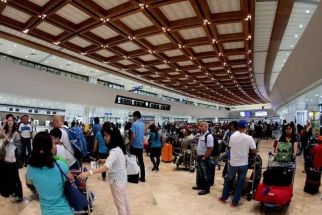PEZA seeks OK of IBPAP’s proposed hybrid work setup
MANILA, Philippines — The Philippine Economic Zone Authority (PEZA) is calling on the Fiscal Incentives Review Board (FIRB) to consider the proposal of the Information Technology and Business Process Association of the Philippines (IBPAP) to implement a hybrid work scheme.
The PEZA also wants FIRB to reconsider the decision to reject the proposal to extend the work-from-home (WFH) scheme for information technology and business process outsourcing (IT-BPO) firms until September this year.
In a statement yesterday, PEZA director general Charito Plaza expressed support for the IBPAP’s proposal to adopt a hybrid working model.
In the hybrid work arrangement, the employer and employees can agree on the percentage of those on WFH and those physically reporting to office, depending on the position or functions of the employee.
“PEZA and IBPAP are doing their best effort for the FIRB to consider immediately the hybrid work scheme, with its three schedules proposed to adopt the 60:40, 40:60 or 50:50 staggered implementations and let the new administration determine the appropriate work scheme considering the suggestion,” she said.
She said PEZA also intends to file its appeal on the denial by the FIRB of its proposal to extend the WFH scheme for IT-BPO firms without the 10 percent onsite capacity requirement and risk of losing incentives until September this year or the validity of the state of calamity.
“We hear the concerns of our investors and their workers and we will continue to lobby on it. For the meantime, I call on our enterprises to follow the decision of the FIRB to avoid any penalties,” she said.
With the PEZA’s request denied by the FIRB, IT-BPO firms can only implement WFH for up to 90 percent of their workforce until March 31.
“We are constantly in talks with IBPAP to still look into ways to include WFH or a hybrid work model in the IT-BPO sector’s operation in the Philippines. We should learn from the likes of India, one of our top competitors for IT-BPOs, wherein they are adjusting its policies and tax breaks to adopt hybrid work arrangement,” Plaza said.
She said the PEZA is backing the implementation of the hybrid work scheme as the increase in fuel prices is making transportation costly for workers.
In addition, she said the pandemic is not yet over even as many areas including the National Capital Region are under Alert Level 1 which allows greater mobility and full operating capacity for business establishments.
As IT-BPM firms have invested in equipment and in enabling their workers to do WFH during the pandemic, she said going back to 100 percent onsite should not be done immediately.
Plaza said the hybrid work scheme is consistent with the Telecommuting Law, a legislation in place since 2018, that recognized working from an alternative workplace with the use of telecommunication and/or computer technologies.
“This is in line with the emerging alternative work schemes implemented by India and other economies realizing that remote work is here to stay and as an innovative solution to be able to sustain particularly their booming IT services industry,” she said.
Plaza said there is also a need to consider challenges being faced due to the pandemic and the impact of the Ukraine and Russia conflict.
“The least we can do is help bring back our thriving economy, but not at the expense of our investors who help keep [and] protect our economy afloat,” she said.
- Latest
- Trending






























